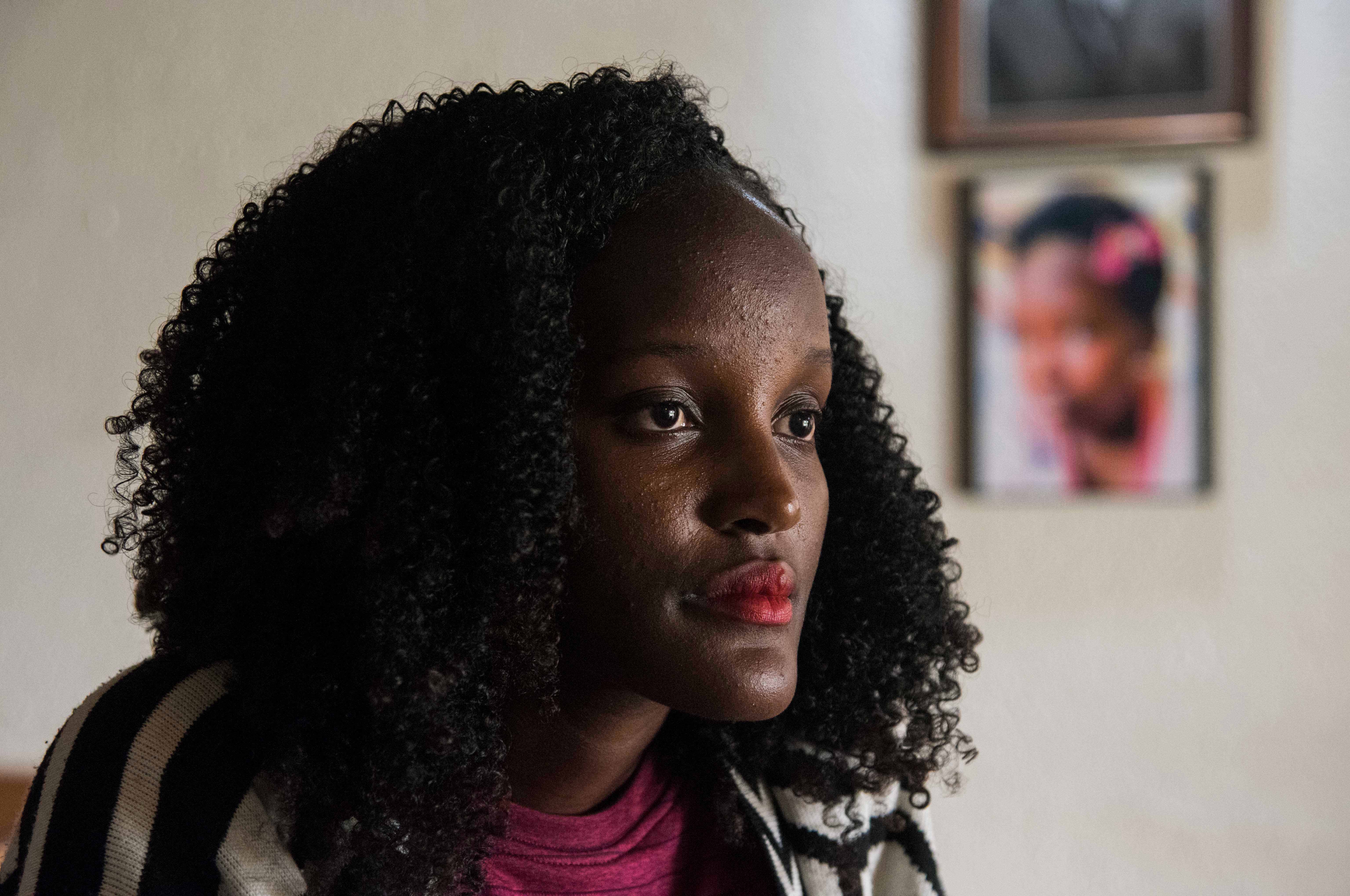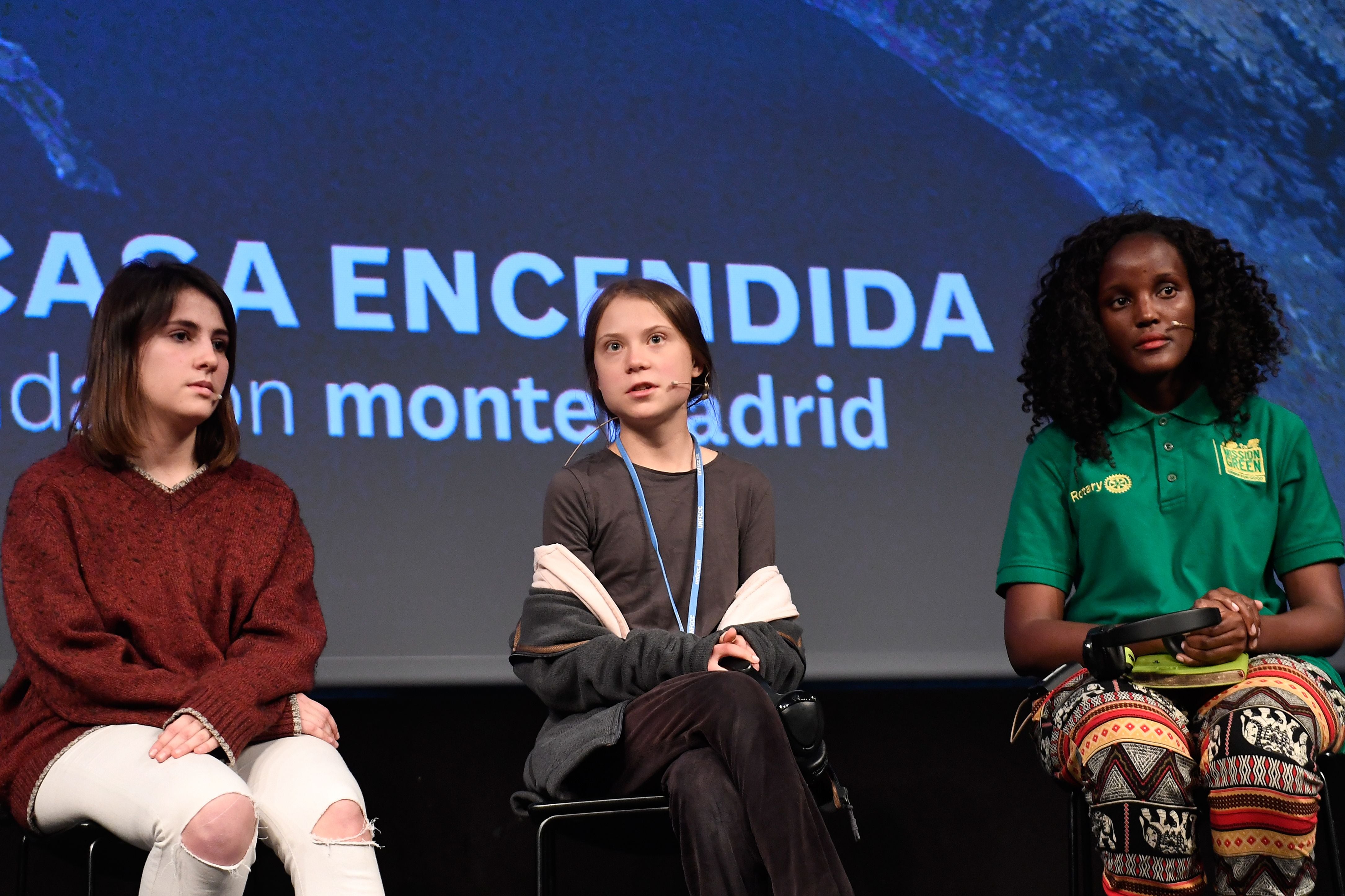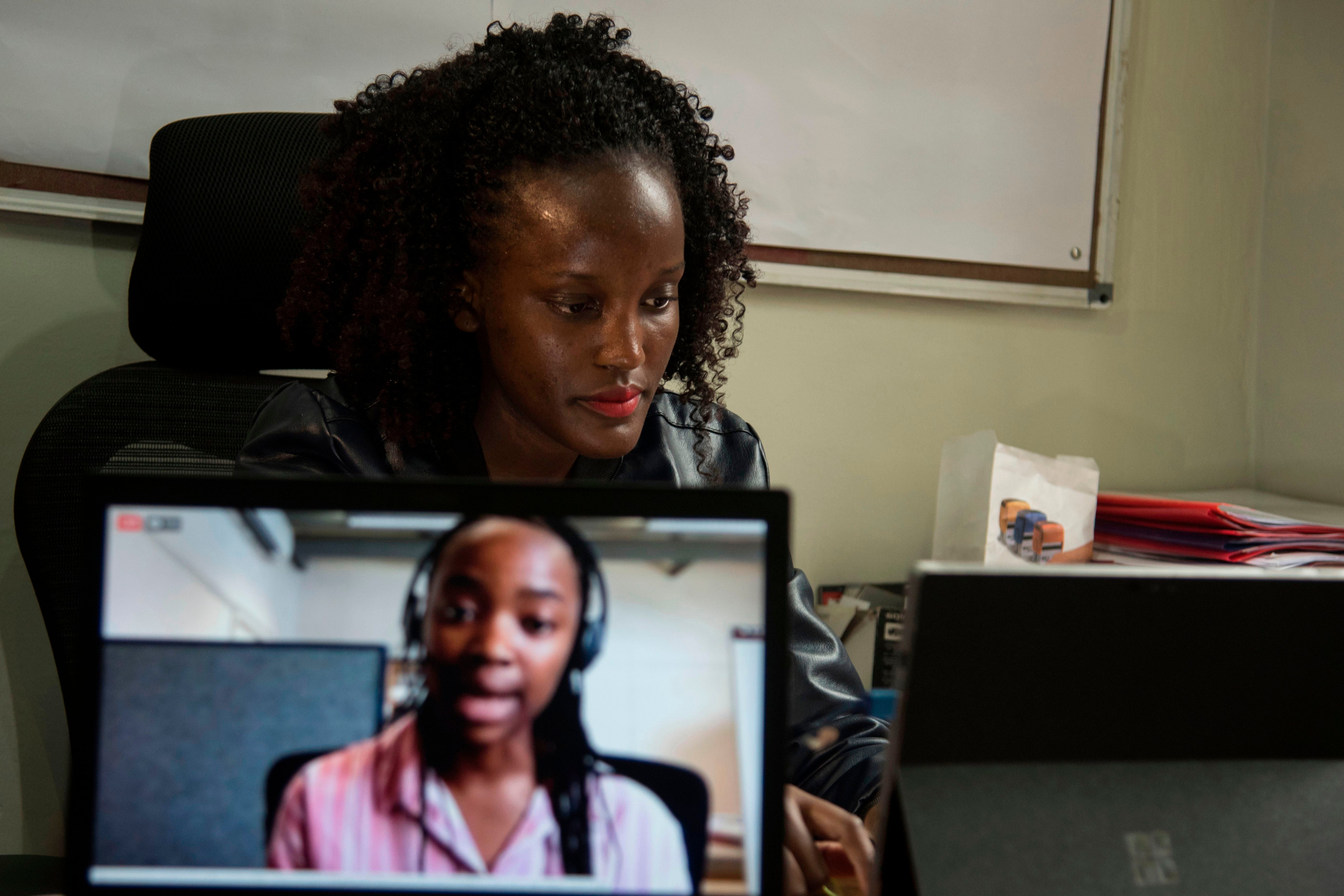Cimate activist Vanessa Nakate: ‘I felt like I had wasted time going to Davos’
Ugandan climate activist Vanessa Nakate was cut from a photo with Greta Thunberg leaving only white people. It was an event that would hurtle her to global fame. She spoke to Abdi Latif Dahir

Your support helps us to tell the story
From reproductive rights to climate change to Big Tech, The Independent is on the ground when the story is developing. Whether it's investigating the financials of Elon Musk's pro-Trump PAC or producing our latest documentary, 'The A Word', which shines a light on the American women fighting for reproductive rights, we know how important it is to parse out the facts from the messaging.
At such a critical moment in US history, we need reporters on the ground. Your donation allows us to keep sending journalists to speak to both sides of the story.
The Independent is trusted by Americans across the entire political spectrum. And unlike many other quality news outlets, we choose not to lock Americans out of our reporting and analysis with paywalls. We believe quality journalism should be available to everyone, paid for by those who can afford it.
Your support makes all the difference.A young climate activist, Vanessa Nakate, had just sat down for lunch at the gathering of the global elite in Davos, Switzerland, in January last year when she saw the photo that would catapult her to global fame – not for what it showed but for what it did not.
Her, to be precise.
Just hours before, Nakate, a 24-year-old Ugandan, had participated in a news conference at the World Economic Forum with four white activists, including Swedish teenager Greta Thunberg. But when news agency Associated Press released a picture of the five from the event, Nakate had been cropped out.
The omission shocked and saddened Nakate, who, in a tearful 10-minute video posted on social media, denounced the “racism” in the global environmental movement and the erasure of Black and African voices from conversations about climate activism even as their communities and countries are disproportionately affected by the crisis.
“I felt like I had wasted time going to Davos,” she says in a recent interview in the Ugandan capital, Kampala. “I felt that I shouldn’t have been at the news conference.”
Yet her presence at the event and the effect that the episode had on her elicited a response that reverberated across the world. Her posts on the issue were liked and retweeted hundreds of thousands of times. AP, which apologised to her both publicly and privately, said it would expand diversity training.
And by the time Nakate’s flight landed in Uganda a day after she posted her video, she had solidified her place as a leading voice among young Africans passionately arguing for action against climate change.
You cannot have climate justice without racial justice. It isn’t justice if it doesn’t include everyone
“I think what really helped me become what I am today is the fact that I spoke up and the fact that people responded with support,” says Nakate, who describes herself as, “a fighter for the people and the planet”. Her book, A Bigger Picture: My Fight to Bring a New African Voice to the Climate Crisis, will be published in November.
Although being edited out of the photo was not an ideal way for people to find out about her work, she says it was certainly a turning point.
AP, which calls the decision a “terrible mistake,” says the picture had been edited to create a close-up of Thunberg and to remove a building that was behind Nakate but the deletion of the sole Black activist from the image highlighted both racial injustice globally and the disproportionate effects that climate change and other environmental problems are having on countries that are predominantly home to people of colour.
The climate crisis “has a racial issue”, says Nakate, who appears softly spoken but is not one to shy away from debate. “You cannot have climate justice without racial justice. It isn’t justice if it doesn’t include everyone.”
Even though Africa produces a relatively low level of greenhouse gas emissions, the continent’s people remain particularly vulnerable to the effects of the climate crisis. Changes in climatic patterns have brought desert locusts endangering food security in East Africa, cyclones devastating lives in southern Africa and threats to the Nile’s critical water supply.
In Uganda, a verdant and landlocked East African nation, communities have suffered the consequences of adverse weather patterns. That has led to protracted dry spells and devastating floods and landslides, with a loss of homes, crops and businesses.

“People have waged war against nature and a war against nature means a war against people themselves,” Nakate told students at an international school on the outskirts of Kampala recently. “Sadly, those who are least responsible face the biggest challenges of this crisis.”
Nakate grew up in Kampala, where her father was the head of a political district. At the family’s home in the Kitintale neighbourhood, photos of Nakate in her university graduation gown dot the living room – a testament, she says, of her parents’ emphasis on educating her and her four younger siblings and giving them a bright future.
She chanced upon environmental activism in 2018 after graduating with a business degree from Makerere University. With no job lined up, Nakate volunteered for the Rotary Club, where she was researching the biggest challenges facing local areas and how she could help. That was when she realised that climate change was not some distant threat but a problem that was eating away at communities and destroying livelihoods.
They are tomorrow’s campaigners. They are tomorrow’s scientists. They need to know they can play a part in protecting our environment
She also found out about Fridays for Future, the movement that Thunberg started in order to press policymakers to listen to scientists and act.
Though eager to take action herself, Nakate says she was initially afraid of taking to Kampala’s streets to protest alone. So, on a warm Sunday morning in January 2019, she enlisted her two sisters, Clare and Joan, and two brothers, Paul and Trevor, to help make placards and join her.
As passersby and drivers stared, the siblings protested at various intersections in the capital, holding signs that read “Nature is life”, “Climate Strike Now” and, “When you plant a tree, you plant a forest.”
“There was the feeling of ‘I have taken so long without doing this and yet people are suffering,’” Nakate says. At that moment, she says, she determined, “to add my voice to the climate movement and demand for climate justice”.
When her siblings returned to school several weeks later, she continued alone, organising climate strikes in schools and standing outside government offices with signs bearing messages such as, “Are you fracking kidding me?” She urged lawmakers to divest from coal and oil companies and to deal with rising water levels in Lake Victoria and high air pollution levels in cities such as Kampala.
By the end of the year, Nakate’s work was attracting attention worldwide, making her a fixture in global conferences and on television. In December 2019, she was one of a few young activists who were invited to speak at the United Nations climate talks in Spain.

She also turned her attention to the rest of Africa, and created the Rise Up Movement to raise awareness about climate change and co-founded One Million Activist Stories to document the experiences of young activists worldwide.
In Uganda, her Green Schools project is installing solar panels and eco-friendly stoves in schools across the country – part of her efforts, she says, to educate young people in rural and urban areas about the realities of climate change.
“They are tomorrow’s leaders,” Nakate says. “They are tomorrow’s campaigners. They are tomorrow’s scientists. They need to know they can play a part in protecting our environment.”
Over the past year, as Uganda enforced one of the toughest pandemic lockdowns in East Africa, Nakate pondered how to help secure a better future for the next generation. She has studied environmental movements founded by the likes of Wangari Maathai, a Kenyan environmentalist and Nobel laureate.
With borders closed and air travel suspended, she has moved much of her activism online, participating in webinars and other online events and constantly addressing her followers on the urgency of the climate crisis on social media, where she has more than 333,000 followers.
“The climate crisis wasn’t quarantined,” she says. “It didn’t go into lockdown.”
Read More:
Although she feels she is making progress in expanding public interest in the climate movement, Nakate also hopes to get many more to care about how the climate crisis intersects with issues of race, gender and class.
“The biggest portion of the world is very unhappy because of the climate crisis,” she says. “All I want to see is a happy people and a happy planet.”
© The New York Times
Join our commenting forum
Join thought-provoking conversations, follow other Independent readers and see their replies
0Comments